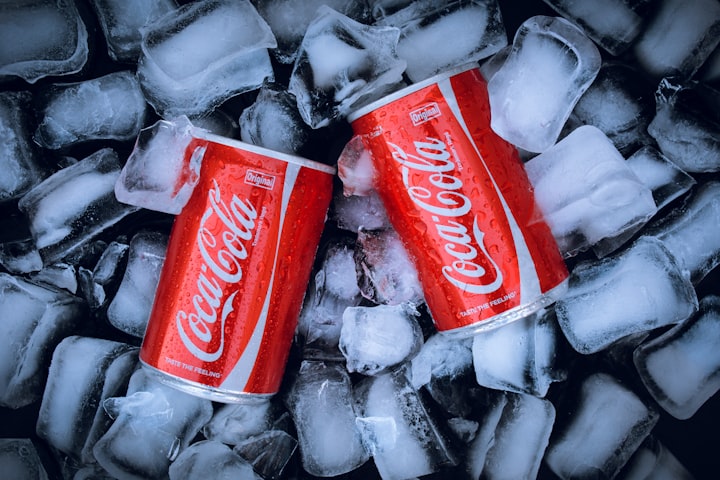Coca-Cola and Esophageal Blockage.
A detailed analysis of coca- cola effects on esophageal blockage insight of recent study

According to a recent study, Coca-Cola had no discernible impact on an esophageal blockage.
Emergency room visits for "food bolus impaction," or food trapped in the esophagus as a result of overindulging or wolfing down food, can spike during the holidays.
Look up "food," "stuck," and "throat" online. The "Coke Hack" is a well-liked at-home remedy: Try drinking Coca-Cola if it's not obstructing the airways and causing choking, which is when someone can't breathe or speak and needs to be immediately brought to the attention of emergency personnel by calling 911 and performing life-saving measures like the Heimlich maneuver. The "effervescent agents" in the beverage are supposed to aid in dissolving and releasing trapped food.
However, a recent study discovered that Coke has no appreciable impact on an esophageal blockage. The results of the randomized controlled experiment indicated that cola did not benefit emergency patients who were waiting for an emergency endoscopy to loosen trapped food.
In the annual mix of lighthearted commentary and peer-reviewed research published in the BMJ's Christmas edition, researchers from the Amsterdam University Medical Centers warn the public that there is currently no easy or quick way to treat food bolus impactions following heavy meals.
Food boluses are frequent, unsettling, and frequently unpleasant. The primary author of the study and an Amsterdam UMC gastrointestinal professor, Dr. Arjan Bredenoord, stated that food particles larger than the esophageal diameter will become lodged in the esophagus.
The person is unable to swallow saliva if the esophagus is totally blocked. According to Breadboard, "They can aspirate the saliva or they can spit it out," which could lead to pneumonia, coughing, or shortness of breath?
Phenomenon has also been referred to as "backyard barbecue syndrome"). Men are more likely to experience this issue, which frequently calls for an urgent endoscopy—an invasive, costly, and sometimes "quite unpleasant" procedure. Stated Bredenoord. Patients are difficult to safely sedate because of the stuck food. "You have to insert the camera into the esophagus through the mouth and sort of push or pull the food piece out."
"These things usually happen in the evenings or nights," which puts additional strain on endoscopic staff members who are on call and in emergency situations.
He stated that a simple fix would be greatly appreciated. "People believed for a long time that cola could be involved in this."
People are encouraged to try carbonated beverages, most commonly Coca-Cola, on websites and Wikipedia. Bredenoord has heard medical professionals suggest it. A man who was choking on a piece of chicken was saved from certain death by British paramedics who poured Coke down his throat.
Success rates in earlier small-scale studies have ranged from 59 to 100%. Because emergency physician Elise Tiebie saw so many patients who had tried cola before visiting the emergency department, she decided to test the theory more thoroughly. This was the first author of the BMJ (formerly British Medical Journal) study.
51 adults with a soft food obstruction who arrived at one of five Dutch hospitals between December 2019 and June 2022 were randomized by Tiebie and colleagues.
Twenty-eight participants were told to regularly sip regular Coca-Cola poured from uncooled cans at intervals of one minute. There was 25 ml of the cola in each sip. The researchers said, "If four sips proved ineffective, there was a 10-minute pause before the one-minute interval protocol was repeated for an additional four sips."
Without any pre-endoscopic medication or drink, the 23 patients in the control group did nothing but wait.
Meat accounted for the majority of food bolus impacts; other foods included bread, fries, or sauerkraut.
In the cola group, 61% of participants showed improvement—the food either passed entirely or partially. However, 61% of the patients who did nothing but wait also experienced improvement.
Bredenoord reported that it appears that a significant number of individuals experience spontaneous loose food. He remarked, "Cola doesn't help here." "To begin with, it wasn't obvious why it would be helpful." Studies from the past lacked control groups.
The researchers are leaving the possibility open even though Coke did not result in a higher rate of improvement. The chance of passing the food bolus, or "disimpaction," increased with the time patients arrived at the hospital and started drinking cola.
Additionally, the sample size was modest, and there were no significant drawbacks to consuming Coke—that is, no adverse events. According to the researchers, if cola doesn't cause an endoscopy to be delayed, it could be regarded as a first-line treatment.
According to Bredenoord, people who have a documented narrowing of the esophagus frequently change the way they eat. They pay closer attention to what they eat.
That can be abandoned over the Christmas season. Individuals usually eat more. They gather with friends and family to eat outside their house. According to Bredenoord, "alcohol is occasionally involved." The level of attention is lower. They bite off larger portions. They gnaw less slowly.
The worst case Bredenoord had was an esophagus that was totally full of food, from bottom to top. Almost full meal.
The lack of effect observed in the Coca-Cola group is not thought to be dose-related, according to the researchers. Bredenoord added that it's unlikely that additional effervescent agents would be helpful.
"Chew your food well," he said. Don't eat and talk at the same time; instead, eat slowly. Consume smaller portions. There is less chance of needing to go to the emergency room the fewer bites there are.





Comments
There are no comments for this story
Be the first to respond and start the conversation.